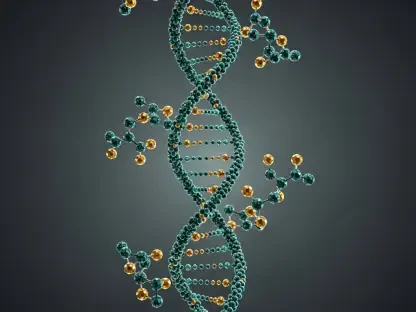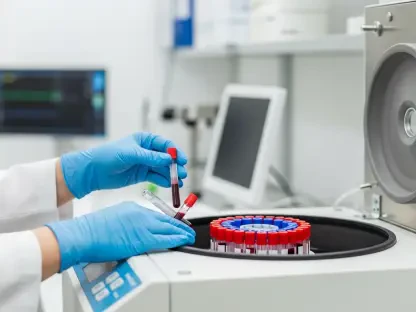In leaps and bounds, the world of oncology is witnessing a transformation as diagnosis time falls dramatically from a month to mere minutes. Imagine identifying cancer cells as swiftly as a heartbeat.
The Need for Speed
The challenges in cancer diagnosis and treatment are numerous and daunting. Patients frequently face lengthy waits and experience anxiety over delayed diagnoses and inappropriate therapies. This delay can have far-reaching societal and economic impacts, as ineffective treatments prolong suffering and limit productivity.
TACIT Unveiled
Enter TACIT, a groundbreaking AI-driven algorithm developed by researchers at VCU Massey Comprehensive Cancer Center. This evolution in cancer care now enables precise marker expression profiling, eclipsing older methods in both accuracy and speed. Having analyzed data from over 5 million cells, TACIT stands unparalleled in its ability to distinguish cellular identities across diverse systems such as the brain, gut, and oral glands.
Real-world Influence
Lead researchers Jinze Liu, Ph.D., and Kevin Byrd, D.D.S., Ph.D., emphasize TACIT’s potential in revolutionizing cancer treatment. Liu highlights its unprecedented accuracy, which outperforms three existing unsupervised methods. A clinician noted how TACIT’s integration into clinical trial processes efficiently sorts patients into suitable treatment plans, thus enhancing outcomes.
Looking Ahead
A future shaped by TACIT holds promising directions in clinical trials and pharmacology, steering research toward patient-specific interventions. Its role extends to optimizing trial design and narrowing potential treatments before patient enrollment. Byrd lauds its proficiency in selecting appropriate candidates for trials, preventing mismatches.
Transformative Opportunities
The multi-omics approach integrating slide and transfer proteomics enables researchers to analyze vast arrays of markers simultaneously. Byrd metaphorically likens TACIT to a “Rosetta Stone,” translating diverse data into a coherent language for wide-ranging research. By expanding these methodologies, the potential for personalized medicine and optimized trial strategies grows greater, steadily altering the landscape of oncology and pharmacology.
In conclusion, TACIT emerged as a significant advancement, paving the way for more effective cancer detection and treatment strategies. Its potential lies boundlessly in refining current methodologies and advancing personalized care. The future of oncology could be set on a transformative path, offering hope to countless patients and opportunities for global health improvement.









